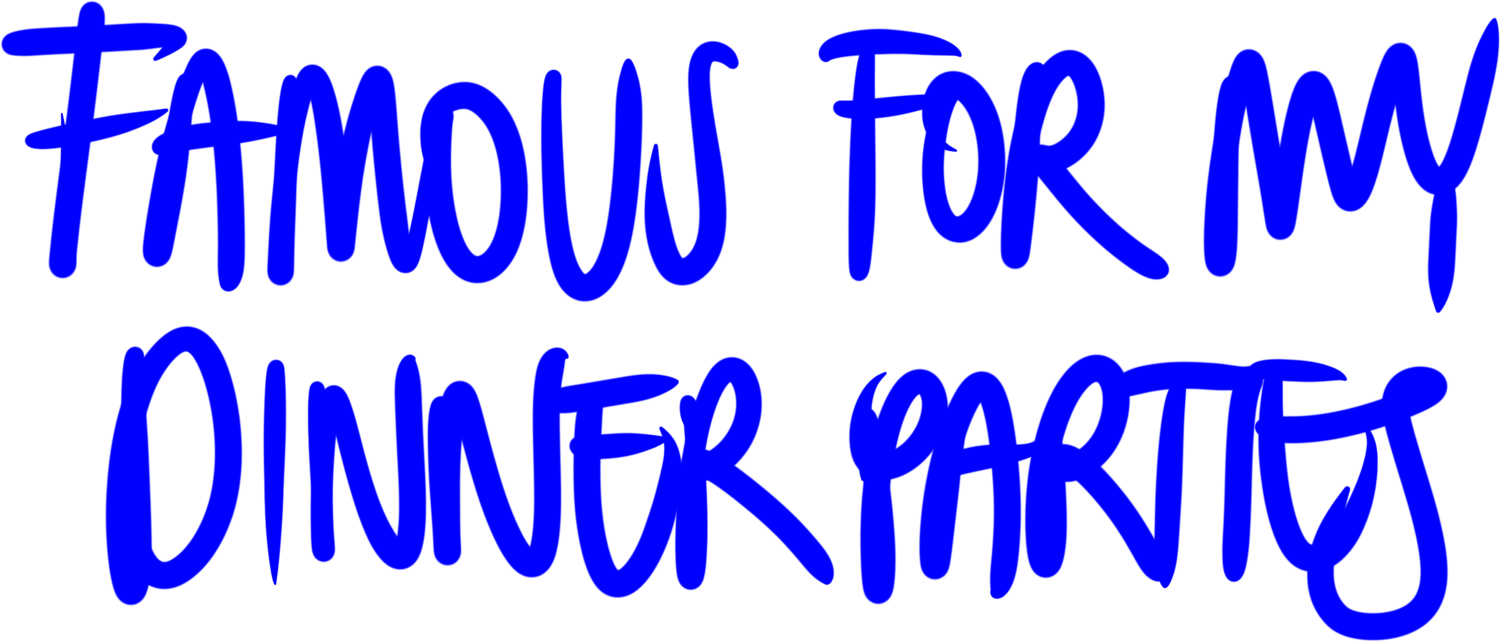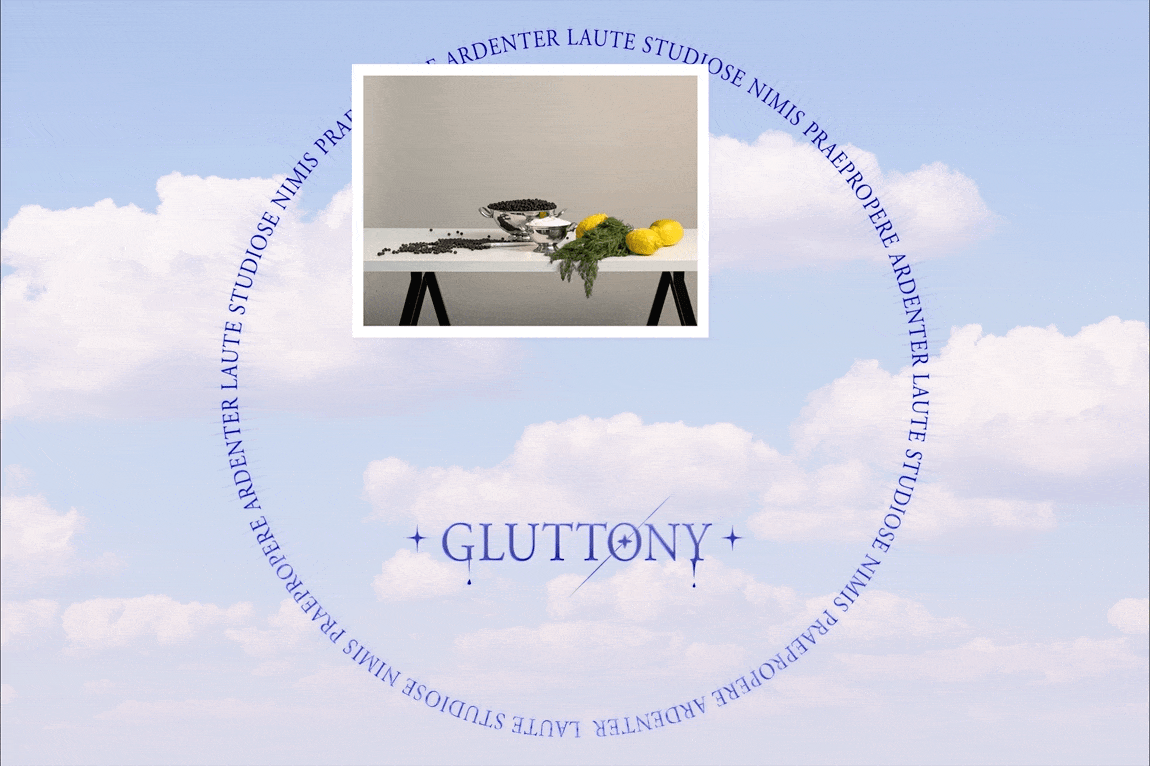BASHING BRUNCH: LOVE, HATE & THE INTERNET
The internet is a strange place and it can suck you into a vortex. On one particular Google afternoon, I was unexpectedly drawn into one and came out on the other end writing this text. That afternoon, I was made aware of a remarkable trend among writers and commentators that, as far as I can tell, began to appear in the last decade, but earlier criticism can be traced back to the early nineties. It was an angry trend, full of passion and explicit disdain. Those participating presented themselves as whistleblowers of sorts, exposing secrets for the greater good of humanity. Entries into the discussion were not only to be found hidden in the comment sections of YouTube videos or neck-deep in Subreddits, but also in publications as diverse as Buzzfeed, Bon Appétit and The New York Times. All of these entries seemed to follow a similar reasoning, and those in the form of articles even had remarkably similar titles. A small selection: Why I Hate Brunch, The Truth About Brunch and Why I Hate It, 10 Reasons Why I Hate Brunch, Brunch Is Bad and It’s About Time We Admit It, The Complete Guide To Hating Brunch, and, a stand-out favourite, Brunch Is For Jerks.
Hating Brunch seemed to be a trendy enterprise, although, admittedly, still nowhere nearly as big as brunch itself. But why all the strong language and even stronger feelings about a seemingly harmless meal? Would I also be able to find communities of people hating breakfast, picnics, high teas or midnight snacks? Were these authors really in on something the rest of us did not yet know? Or was I the only one that had been left behind? After reading variations on the line “I hate brunch. There, I said it'' in three articles, I was beginning to think maybe this statement wasn’t as controversial as the authors wanted me to believe. It was, in fact, very much ‘a thing’. Still, though, a big mysterious thing. All of these texts seemed to imply there was some kind of brunch conspiracy going on, that we had been tricked into liking something so obviously and utterly unlikable. I read articles referring to ‘the cult of brunch’, others declaring the meal a public health risk. Even more features implied financial scams by big bad restaurateurs that consumers and restaurant workers alike were the victim of. Just how did we get here?
The word brunch is a portmanteau, and portmanteaus seem likely to be frowned upon — Brangelina, frenemy and glamping are a few modern examples. This word, however, was apparently coined in 1895 by Guy Beringer in his seminal essay Brunch: A Plea, published in a British gentleman’s magazine called Hunter’s Weekly. As the title suggests, Beringer had an idea and he was enthusiastic about it. He pitched his “corruption of breakfast and lunch” as a meal “which combines the tea or coffee, marmalade and kindred features of the former institution with the more solid attributes of the latter.” Controversial not only because of the corrupting linguistics, but also because of what it was pitted against: “the purgatory of those Sabbatarian early dinners with their Christian beef and concomitant pie”, meaning heavy, post-church, Sunday afternoon dinners. Making it to church required getting up early on Sunday morning, something Beringer considered no fun at all. At the time of writing his infamous essay, Beringer was twenty-two years old and wanted to enjoy his Saturday nights without having to get on “that moral ‘last train’”. He even questioned the likelihood of a “becomingly religious frame of mind” after being forced to wake up early on one’s only morning off, and promised to make up for missing church during the rest of the week. He could use his now free Sunday morning to sleep in, followed by brunch, served between twelve and half-past. Implementing his new meal into society at large, according to Beringer, would mean nothing short of revolution:
The world would be kinder and more charitable if my brief were successful. To begin with, Brunch is a hospitable meal; breakfast is not. Eggs and bacon are adapted to solitude; they are consoling, but not exhilarating. They do not stimulate conversation. Brunch, on the contrary, is cheerful, sociable, and inciting. It is talk-compelling. It puts you in a good temper; it makes you satisfied with yourself and your fellow-beings. It sweeps away the worries and cobwebs of the week. The advantages of the suggested innovation are, in short, without number, and I submit it is fully time that the old régime of Sunday breakfast made room for the ‘new course’ of Sunday Brunch.
In short, brunch was meant to be eclectic — mixing different words and different meals —, and special: a weekend-only treat. In its most basic form, it was a stance against the dusty morals of conservative personal politics — a plea for freedom. In lieu of the settled-in-its-ways Sunday dinner, it offered “a happy medium — everything good, plenty of it, variety and selection.” There was something distinctly modern about brunch in 1895, and it would take more than a hundred years until brunch itself would become the object of ridicule, a symbol of mundaneness accused of being the worst of all things bad in twenty-first century internet culture: basic. Before any of that, however, it probably slowly spread across the United Kingdom, before first making a buzz in the United States in the nineteen-thirties. It was in Chicago, a popular lay-over on long train trips, that hotels began to offer the meal to worldly travelers and socialites. This was also where brunch began to develop its distinctly boozy character (although Beringer had also introduced the suggestion of serving whisky or beer in place of coffee or tea). Beringer’s deliberately vague description of the food served at brunch was gradually coloured in with the invention and consequent popularisation of such brunch classics as Eggs Benedict. In other respects, Beringer’s rebellious influence could be felt for much longer: As time went by, restaurants lost their monopoly on the meal, and people began seeing it as an easy way to entertain at home. Brunch felt a lot less fussy and stuffy than hosting a dinner party, and in many ways became the liberation of sorts Beringer had intended it to be.
In the nineteen-nineties, cracks began to appear in the fresh and easy-going image of brunch. Since the eighties, a flashy time in many ways, restaurants’ grip on the meal had begun to tighten again, and the dishes served became increasingly eccentric. The first signs of criticism appeared in a 1998 New York Times-article titled At Brunch, The More Bizarre The Better. The author calls the meal “neither fish nor fowl nor good red herring”, claiming the “strange world of brunch continues to expand, generating bizarre new life forms, embracing flavors and ingredients never before associated with mankind’s pre-noon existence.” While calling the combination of sweet and savoury dishes or the consumption of savoury foods before noon ‘bizarre’ is a rather Eurocentric worldview, the article is interesting because it laid the groundwork for the consequent criticism we’ve seen in the last decade. These criticisms can be divided into three main points: Firstly, there’s the fish-nor-fowl argument concerning the food itself, and a rather moralistic stance on day drinking. Secondly, there is the issue with the brunch-serving restaurants: There is talk of blown-up prices, angry, hungover wait staff and annoyed chefs. These concerns were verified and cemented in 2000, when Anthony Bourdain published his tell-all memoir Kitchen Confidential, claiming not only that hollandaise was “a veritable petri dish of biohazards”, but also condemning brunch itself:
Buzzword here, ‘Brunch menu’. Translation? ‘Old, nasty odds and ends, and twelve dollars for two eggs with a free Bloody Mary.’ One other point about brunch. Cooks hate brunch.
Thirdly, there is the social aspect, and this is where it gets tricky. On the face of it, a lot of articles discuss this point by describing brunch as a weekly, rather forced get-together with friends and most probably someone's last night’s one-night stand — meaning brunch had become as settled in its ways as Beringer’s nightmare Sunday Dinner. But underneath all that, this aspect describes a bigger social issue, which is the ‘brunch lifestyle’. For many, brunch and specifically brunch places have become an indicator of gentrification in cities. Brunch is also claimed to be a symbol of society’s rejection of adulthood: a reflection of a generation indulging in laziness, and drunken nights extending into drunken days. With that, I believed I had reached the end of the road. The discussion about brunch sounded a lot like other intergenerational discussions — like boomers accusing millennials of spending all their money and time on and at Starbucks. I had discovered why people hate brunch and found that a lot the connotations they had — the drinking, the frequency, the problem with the food — were lost on me.
But then it got worse. In a book titled The Trouble With Brunch, author Shawn Micallef turns the apparent perpetrator, the brunch-goer, into a victim of sorts. For his Theory of Brunch he uses two sociological studies, Thorstein Veblen’s 1899 treatise The Theory of the Leisure Class, and Richard Florida’s 2002 The Rise of the Creative Class. The latter describes a then-upcoming new class of young creatives, who often work as freelancers, like to live in big cities and are tasked with innovating society. In short, it’s what we would now call millennials working in startups. Micallef argues that this class — the one that goes to brunch most — is often overworked and underpaid, but wrongly considers itself to be part of the middle class. He instead likens this ‘brunching class’ to the lower classes as described by Thorstein Veblen in 1899. According to Veblen, active leisure was once a symbol of the rich: a way of showing off the possession of extra time and money. The lower classes in turn mimicked these behaviours to uphold a facade of higher social standing, but in doing so, reduced the money available to them to actually climb the ladder. This reminded me of the points Siegfried Kracauer made about cinema in his 1928 essay The Little Shop Girls Go to the Movies, about a new class of working women that sought out leisure activities at the end of a working day — the movies — that had been designed to re-instill in them the ideas and social constructs that kept them in tow. The long lines in front of brunch places described in many brunch-hating articles seemed to imply similar herds of mindless sheep drowning their problems in mimosas, temporarily feeling in charge of their lives and fates — only to do the whole thing again the next week. Beringer’s meal for lazy Sundays had turned into a battleground of the class war, of which the brunch-goer was the unknowing victim.
Brunch is a meal, and, like any other meal, things — good and bad — can be said for it. I would be the first to argue that food is more than mere fuel, and consequently, brunch means more than ‘a meal that combines late breakfast and early lunch’: food and how and where it’s eaten has social implications and says something about the way we live. However, when something — anything — becomes a symbol of something much bigger, it is often overestimated in its power. Gentrification is real, and where it makes for a threat to the ideal of a socially just society, it’s hardly brunch’s fault. Although there is a generation that makes less money than their parents, yet spends more on weekly brunch outings, it doesn’t mean that brunch has anything to do with them being blind to their own fate. If ‘brunch culture’ is a symptom of an underlying cultural or societal problem, getting rid of baked eggs and bloody marys won’t actually solve the issue. Let’s not forget, also, that brunch still exists as a family feast for occasions as Easter or Mother’s Day. Micallef’s book is very interesting, but to me, it seems to actually be about more pressing issues than brunch: It’s just that brunch was a seemingly catchy image summarising his point. As much as brunch has become a cliché — and I do wish cafés would try to offer something other than the standard pancake-benedict-french-toast-fare — all those internet articles with their stylised anti-brunch cynicism, their cookie-cutter insults and patronising snobbery, feel even staler. Maybe next year, when this pandemic is hopefully over, invite some friends over for brunch. Make them something fish-nor-fowl, or stick to eggs benedict, and see how it feels. Or if you do want to bash brunch, do what Beringer did, and come up with a meal of your own. “Brunch Is Bad and It’s About Time We Admit It” — I won’t.
Text, Food, Set: Yannic Moeken
Copy Editing: Charlotte Faltas
Photography: Junshen Wu
Set and Production: Sandra von Mayer-Myrtenhain
Sources:
Joel Stein: Why I hate brunch
Amy Watson: 10 reasons why I hate brunch
Natalya Lobanova: Brunch is Bad And It’s About Time We Admit It
Candace Hudson: The Truth About Brunch and Why I Hate it
Andrew Knowlton: Why I Hate Brunch
David Shaftel: Brunch Is for Jerks
Jordana Rothman: The Complete Guide to Hating Brunch
Sadie Stein: Are We Done Hating Brunch?
Guy Beringer: Brunch, a plea
William Grimes: At Brunch, The More Bizarre The Better
Andrea Victory: A Brief History of Brunch
Shawn Micallef: Trouble with Brunch: Work, Class and the Pursuit of Leisure, 2014
Anthony Bourdain: Kitchen Confidential, 2000
Siegfried Kracauer: Little Shop Girls Go to the Movies, 1929








